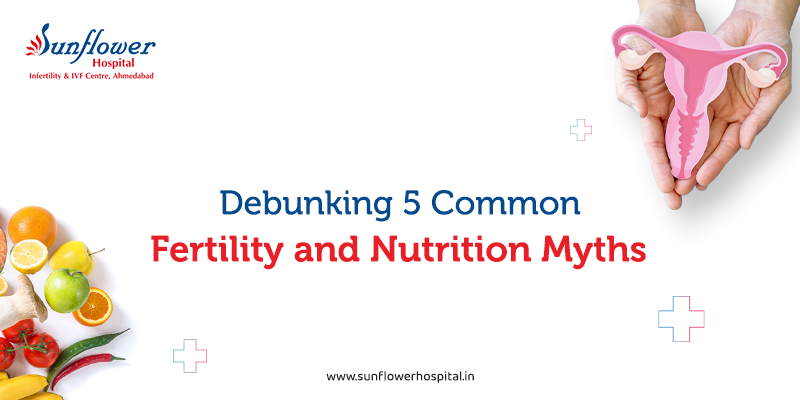Fertility is a person's ability to induce conception or conceive. Several factors, including nutrition, affect fertility in either way. Nutrition, being a significant influencer, is capable of disturbing reproductive health. Fertility specialists at the best fertility hospital in India often discuss the relationship between nutrition and fertility.
While they have all the knowledge, common people discussing both topics usually end the discussion with certain misconceptions or myths. Thus, this article debunks some common misconceptions people discuss and believe about fertility and nutrition.
Myth 1: Eating for Two Improves Fertility
Pregnant women or those trying to conceive often hear that they should eat for two. The idea behind this myth is that eating double calories can boost fertility naturally, increasing the chances of conception. Even though a healthy diet and nutrition are important, overeating can lead to complications. One significant adverse effect is weight gain. It can lead to hormonal disbalance, disrupting the natural functioning of reproductive organs and even menstrual cycles.
Myth 2: A Detox Diet Improves Fertility
People often rely on detox diets to clean their bodies and improve fertility. However, the human body has in-built detoxification mechanisms. Sticking to extreme detox diets can disturb the levels of essential nutrients. This leads to hormonal imbalance, negatively impacting fertility.
Myth 3: Low-Carb and High-Protein Diets are the Best
High-protein and low-carb diets have been in the limelight for a while now. This is particularly true for people wanting to lose or manage weight. However, this might not be the best option since carbohydrates are vital in reproductive health. They offer energy and help maintain hormonal balance. So, include fruits, vegetables, and whole grains in your diet.
Myth 4: Supplements can Replace a Healthy Diet
Supplements are extremely useful in case of nutritional deficiencies. However, they cannot replace a healthy, nutrition-rich diet. In fact, excessive consumption of some minerals and vitamins can lead to side effects. So, consult a nutritionist or healthcare provider before starting a supplement diet.
Myth 5: The Intercourse Timing Matters Less than Diet
Eating healthy is crucial for fertility, but what's more/equally important is the timing of your intercourse. It determines whether the conception is successful. Thus, understanding the fertile window and menstrual cycle becomes essential. Your knowledge, efforts, and healthy diet together support reproductive health.
Conclusion
Couples wanting to conceive must shift to a nutritious diet. It helps you maintain a healthy weight and hormonal balance and boost fertility. All of this ultimately enhances your chances of conception. However, don't get trapped in the myth bubbles. Instead, visit a fertility specialist at the best IVF Center in India. The discussion will help you rely on facts and make decisions that suit your body.






Comments